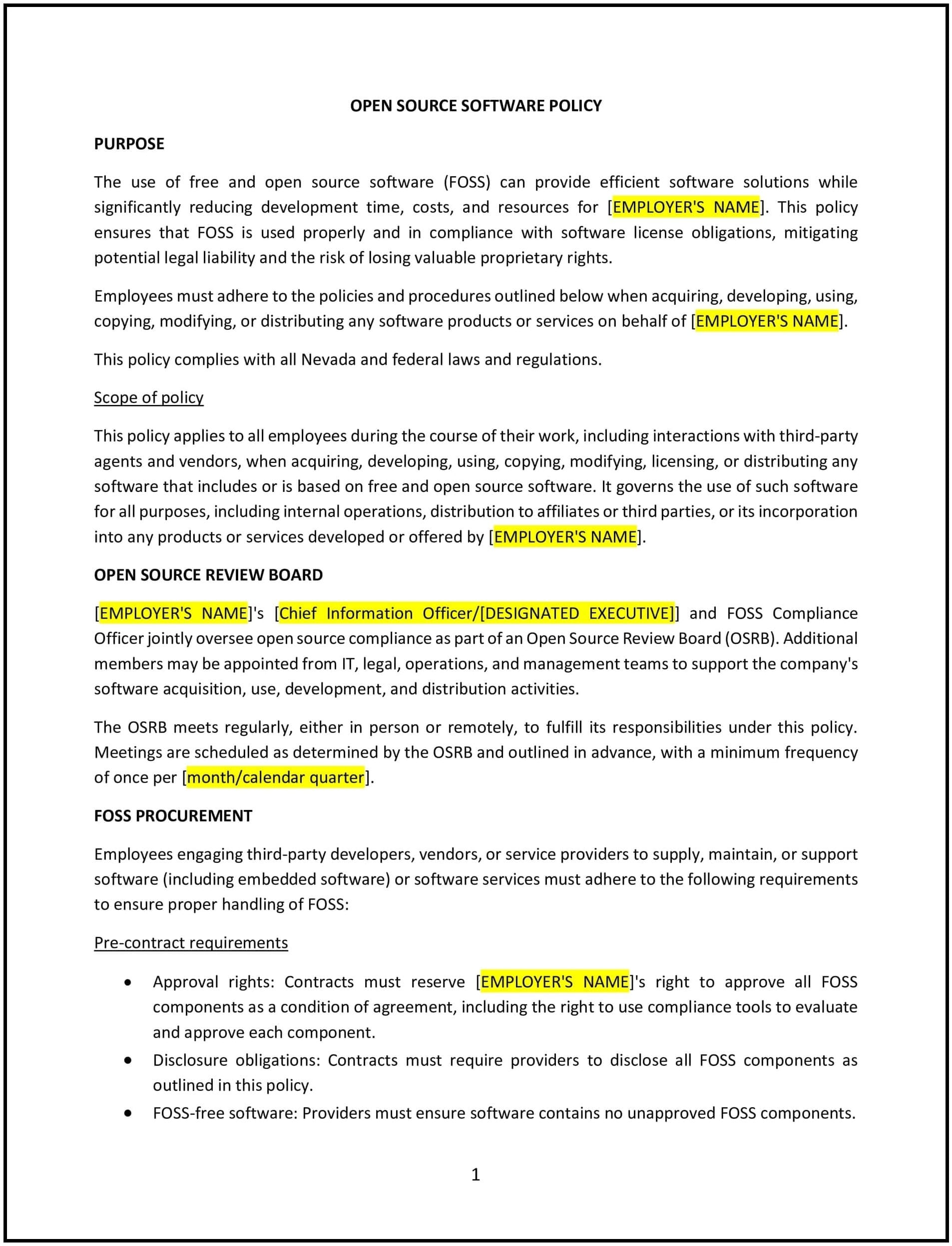Open source software policy (Nevada): Free template
Got contracts to review? While you're here for policies, let Cobrief make contract review effortless—start your free review now.

Customize this template for free
Open source software policy (Nevada)
This open source software policy is designed to help Nevada businesses manage the use of open-source software (OSS) in a way that ensures compliance with licensing requirements, protects intellectual property, and mitigates security risks. It outlines guidelines for adopting, using, and contributing to OSS in business operations.
By adopting this policy, businesses can promote innovation, reduce legal risks, and maintain operational integrity while leveraging the benefits of open-source technologies.
How to use this open source software policy (Nevada)
- Define acceptable use: Specify the types of open-source software that can be used in business operations, focusing on tools that align with company objectives and meet security and compliance standards.
- Evaluate licensing terms: Require employees to review and understand the licensing terms of any OSS before use, ensuring compatibility with the company’s intellectual property policies.
- Establish approval processes: Implement a process for seeking approval before integrating OSS into company systems, including an evaluation of risks and benefits.
- Provide security guidelines: Outline measures to assess and mitigate security risks associated with OSS, such as conducting vulnerability scans and ensuring regular updates.
- Document software usage: Maintain an inventory of all OSS used in the organization, including versions, licensing terms, and associated projects.
- Address contributions to OSS: Specify the conditions under which employees may contribute to open-source projects, emphasizing the need to protect company intellectual property.
- Train employees: Offer training to ensure employees understand the implications of using and contributing to OSS, including legal, security, and operational considerations.
- Monitor compliance: Regularly review OSS usage to ensure adherence to licensing terms, company policies, and security standards.
Benefits of using this open source software policy (Nevada)
This policy provides several benefits for Nevada businesses:
- Strengthens legal compliance: Helps businesses adhere to OSS licensing terms, reducing the risk of legal disputes or penalties.
- Protects intellectual property: Safeguards company proprietary information from unintended disclosure through OSS use or contributions.
- Mitigates security risks: Establishes protocols to address vulnerabilities in OSS and prevent security breaches.
- Promotes innovation: Encourages the responsible use of OSS to drive innovation and reduce development costs.
- Enhances operational control: Maintains oversight of OSS usage and contributions to ensure alignment with business goals.
Tips for using this open source software policy (Nevada)
- Communicate the policy: Ensure all employees, particularly those in technical roles, understand the guidelines and requirements for using OSS.
- Involve legal and IT teams: Collaborate with legal and IT departments to review OSS licenses and assess security risks before adoption.
- Maintain an inventory: Keep a detailed record of all OSS used in the organization, including licensing details and updates.
- Conduct regular audits: Periodically review OSS usage and contributions to ensure compliance with this policy and evolving regulations.
- Update the policy as needed: Revise the policy periodically to reflect changes in OSS trends, business needs, or legal requirements.